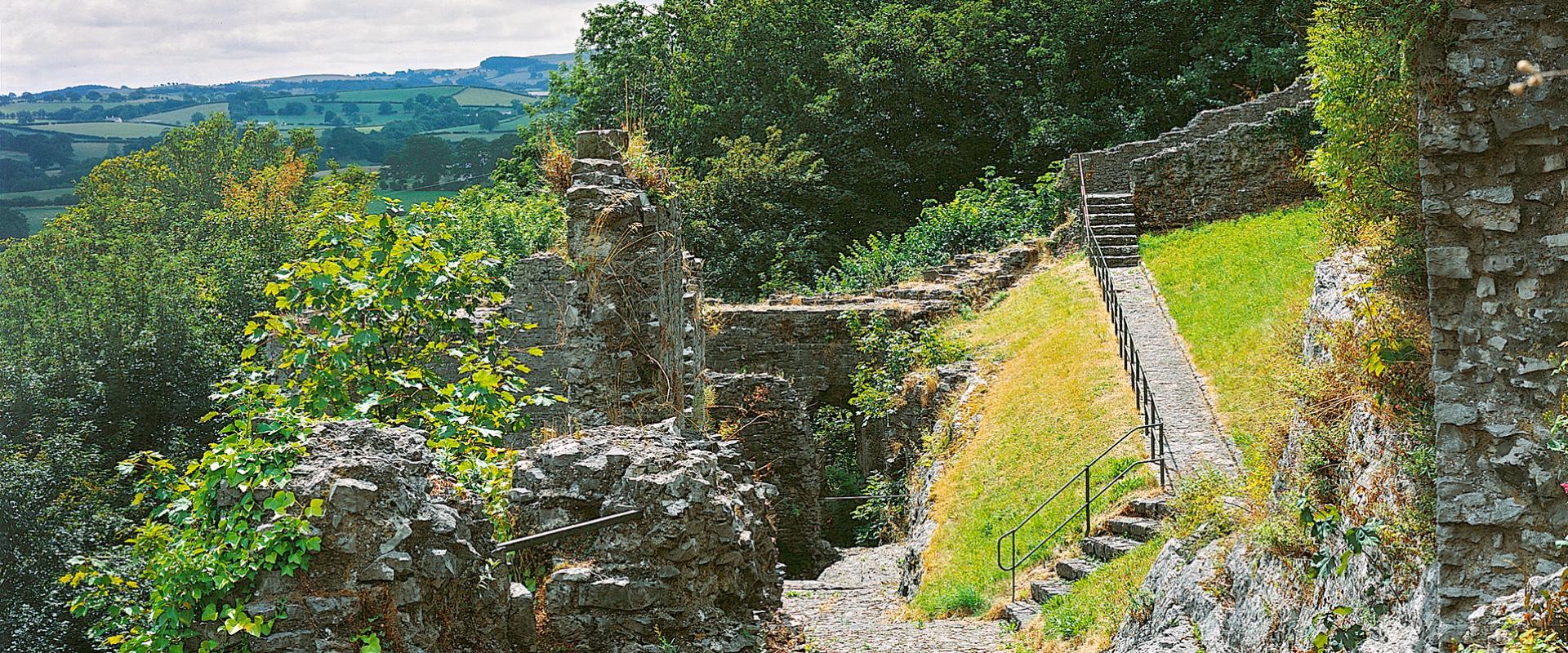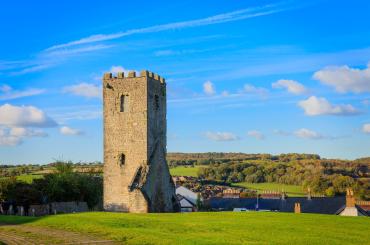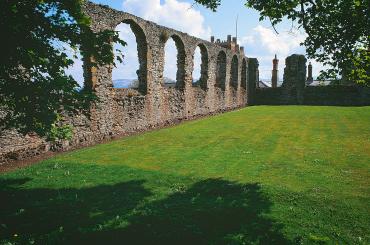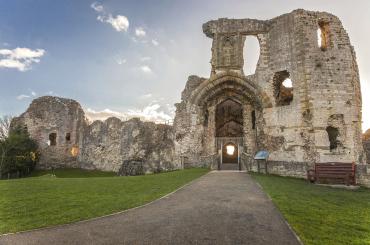Denbigh Town Walls

The first line of defence for Denbigh’s medieval castle
The rocky outcrop that’s home to Denbigh’s castle and town walls was once the site of a stronghold belonging to Welsh prince Dafydd ap Gruffydd, though the remains that stand today are the work of English king Edward I. Built around 1285, Denbigh’s walls were constructed before the castle that sits inside them, presumably to protect the workforce from attacks by native forces.
The walls were extended in the 14th century to include the impressive Goblin Tower. This housed a secondary well within the town’s defences, which went on to help Denbigh survive sieges in the 16th-century English Civil War.
Much of the wall still stands, along with the remains of a number of towers and two gatehouses. Of these, the Burgess Gate to the north is the best preserved.
Opening times & prices
Opening times
| 1st April - 31st October | 10am–5pm (closed Tues-Wed) |
|---|---|
| 1st November - 31st March | 10am–4pm (closed Mon-Thur) |
|
Closed 24, 25, 26 December and 1 January The key to access the wall walks is available from Denbigh Castle. There is a returnable cash deposit to pay for the key. Last admission to the wall walks is 3pm. |
|
Visitor information
Dogs welcome
Car park
Parking and toilets available at Denbigh Castle during castle opening times.
Car charging points - Two Type 2 (22kW) electric charge points available in castle car park — charges for use apply
Walking difficulty
Terrain: Level 3 — Moderate
There are some very steep sections of stairs between the Countess and Goblin towers
Drone policy
No smoking
Health & Safety
Access to the wall walks is only available via a key from the castle. This is only available during opening hours, as this gives us an opportunity to check the walls prior to your visit.
There are several steps leading to and upon the walls. Open to the elements the steps may be wet and slippery. There are several overhanging trees and therefore be mindful of wet leaves.
Please use the handrails provided, especially upon the steep sections.
As with all ancient monuments there is always a risk of stones being dislodged in bad weather, however, we manage this through extensive monitoring.
Climbing may result in serious injury.
There are several wild plants and flowers, although these are great pollinators, they may be poisonous to visitors and animals, we strongly advise you not to touch or allow dogs to eat any vegetation.
Please watch our health & safety film before visiting Cadw sites.
Iechyd a Diogelwch / Health and Safety
Please report any anti-social behaviour such as climbing, setting fires, graffiti etc. to CadwAccidentsReports@gov.wales
The following signs can be found around the site at key areas of risk, please pay attention where appropriate.
Steep and uneven steps
Slippery or uneven surfaces
Falls from height
Falling masonry
Directions
Google MapAround hillslope below the castle.
what3words, nearest parking: ///valued.rejoiced.strapped
what3words, entrance: ///mirroring.remodels.stall
Unlimited access to Wales' past
Join Cadw for as little as £2.00 a month and gain unlimited access to over 100 historical sites.
Enjoy the many benefits of Cadw membership
- 10% off Cadw gift shops
- 50% off entry to English Heritage and Historic Scotland sites
- FREE entry to English Heritage and Historic Scotland on renewal
- FREE entry to Manx National Heritage properties
- FREE membership pack including car sticker and full colour map


